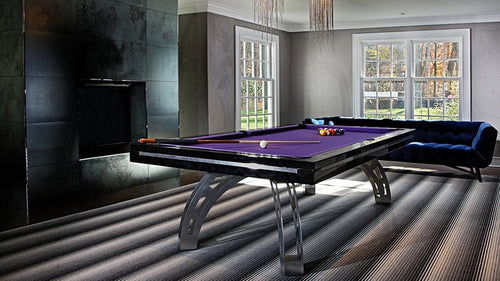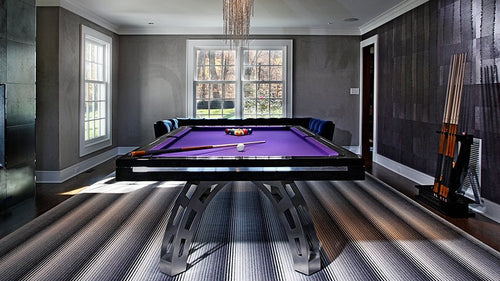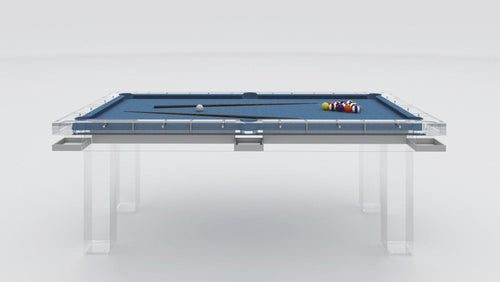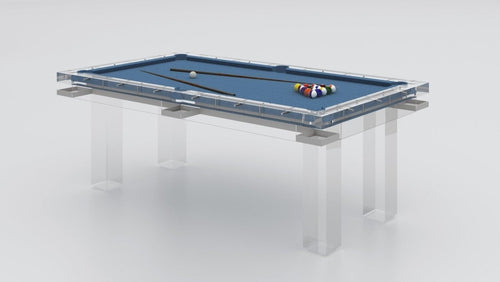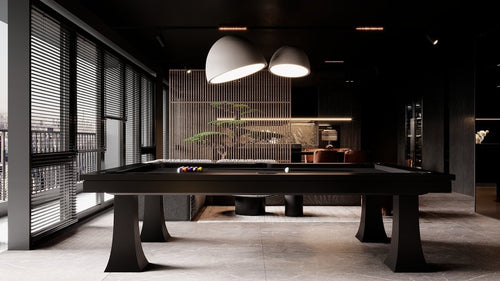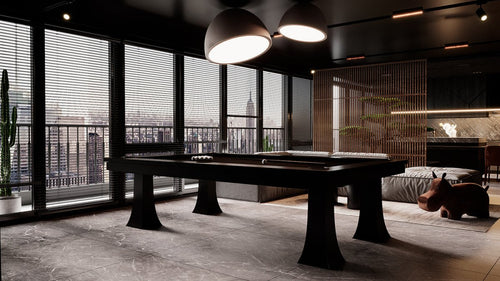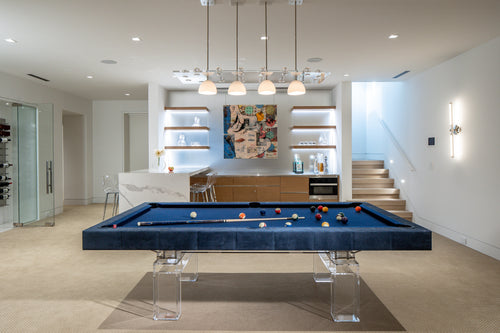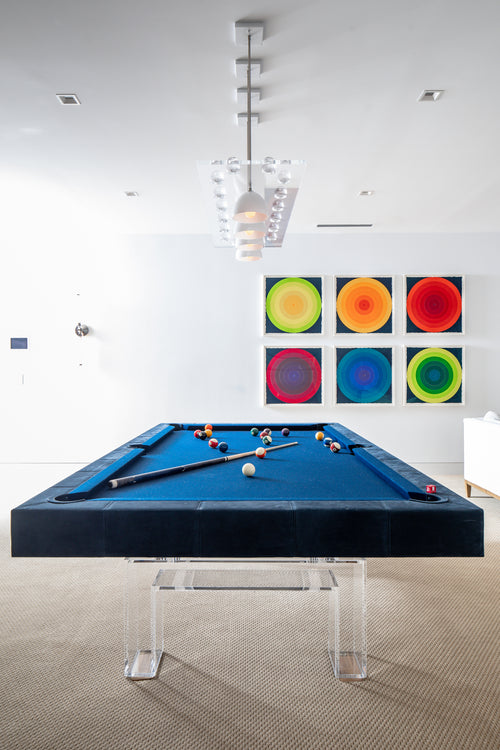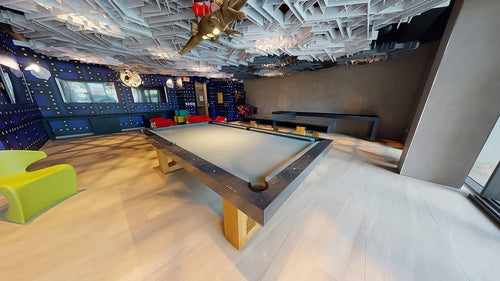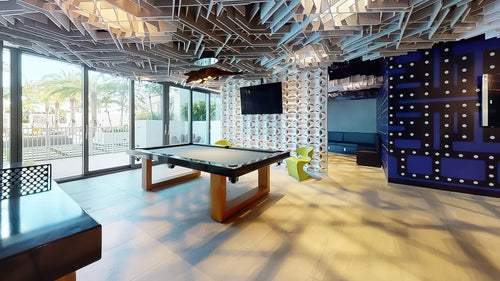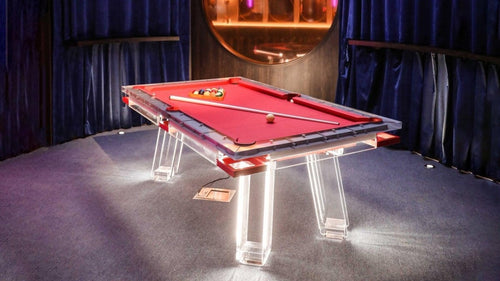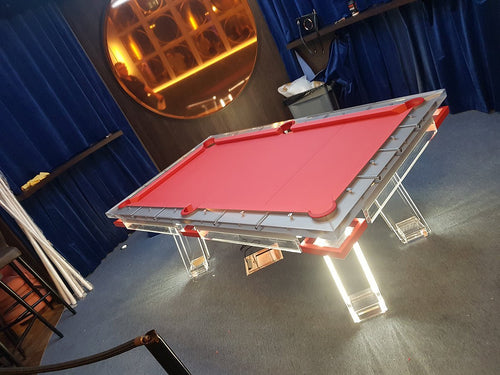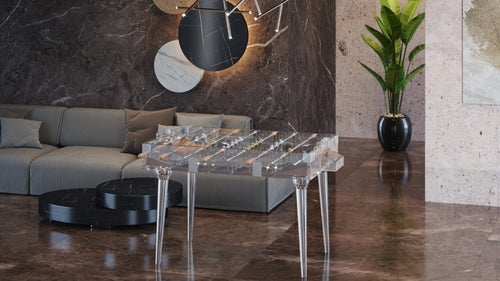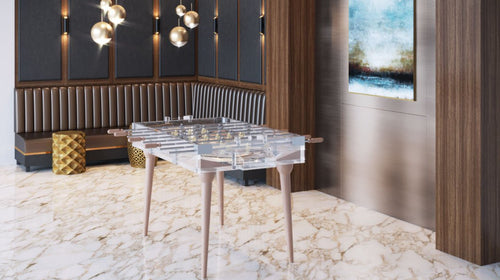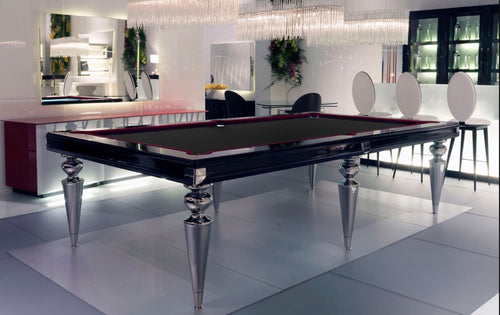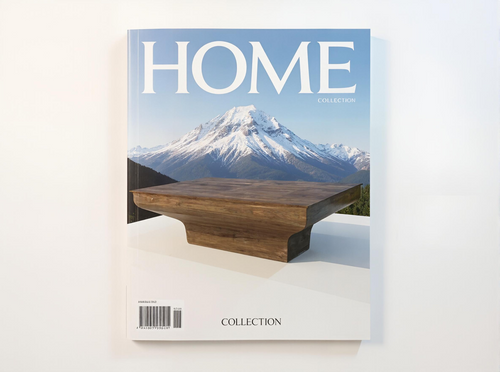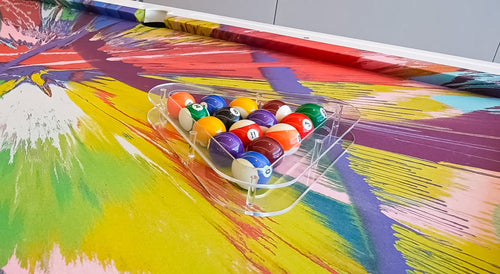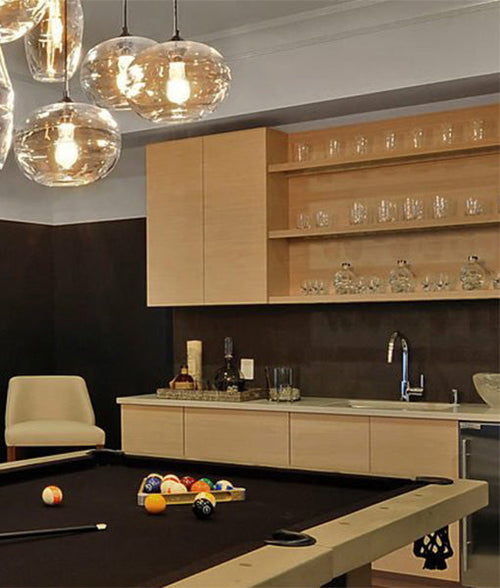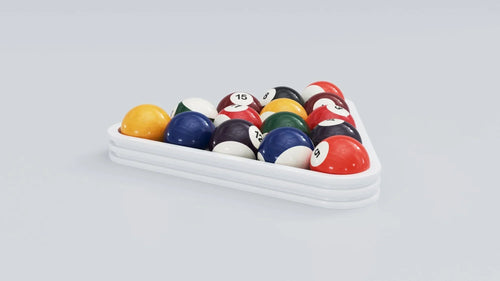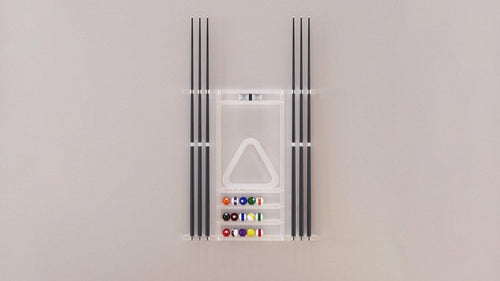Enjoy our modern designs
Owning a pool table can elevate the entertainment value of your home, providing endless enjoyment and serving as a stylish focal point. However, selecting the right size involves more than just aesthetic considerations. It requires careful planning to ensure that the table fits comfortably within your space, accommodates players, and aligns with your playing preferences. This guide delves deep into the nuances of pool table sizes, offering insights and practical tips to help you make an informed decision.
Understanding Pool Table Sizes

Pool tables come in various sizes, each tailored to different environments and playing styles. Understanding these sizes is the first step in selecting the perfect table for your home.
Regulation-Size Pool Tables
Regulation-size tables adhere to the standard dimensions used in professional play. The key characteristics include:
- Ratio: Length to breadth ratio of 2:1.
- Common Dimensions: A 9-foot table typically measures 4.5 feet wide.
- Usage: Ideal for serious players who want a table that meets competitive standards.
Pros:
- Suitable for tournament play.
- Provides ample playing space for accurate shots.
Cons:
- Requires a large room.
- Higher cost compared to smaller tables.
Tournament-Size Pool Tables

Tournament-size tables are a subset of regulation tables, optimized for competitive play.
- Dimensions: Typically 9 feet long with a minimum of 1-inch thick slate.
- Rail Width: Between 4 to 7.5 inches.
- Height: Ranges from 29.5 to 31 inches.
Pros:
- Enhanced durability with thicker slate.
- Consistent play surface for professionals.
Cons:
- Expensive and bulky.
- Not ideal for casual play due to size.
Snooker Tables

Snooker tables are larger and cater to the specific demands of the game.
- Standard Dimensions: 12’ x 6’ or 140” x 70”.
- Oversized Versions: Can extend up to 10 feet in length.
Pros:
- Perfect for snooker enthusiasts.
- Offers a unique playing experience.
Cons:
- Requires significant space.
- Less versatile for standard pool games.
Choosing the Right Size for Your Home

When selecting a pool table for your home, several standard sizes cater to different room dimensions and user preferences.
Common Pool Table Sizes
6-Foot Pool Tables
-
Dimensions: Approximately 6 feet in length and 3 feet in width.
- Best For: Small apartments or rooms with limited space.
- Pros: Compact, affordable, easy to move.
- Cons: Limited playing space, may feel cramped with multiple players.
7-Foot Pool Tables
-
Dimensions: Roughly 7 feet long and 3.5 feet wide.
- Best For: Medium-sized rooms, families with children.
- Pros: Versatile size, accommodates both adults and kids.
- Cons: Limited cue maneuvering space for serious players.
8-Foot Pool Tables
-
Dimensions: Approximately 8 feet in length and 4 feet in width.
- Best For: Most homeowners seeking a balance between size and space.
- Pros: Ample playing space, suitable for more than two players.
- Cons: Requires moderate space around the table.
9-Foot Pool Tables
-
Dimensions: Around 9 feet long and 4.5 feet wide.
- Best For: Large rooms or dedicated game rooms, serious players.
- Pros: Authentic, spacious playing experience, ideal for competitive games.
- Cons: Requires significant room, higher investment cost.
Key Considerations
- Room Size and Layout: Ensure the table fits comfortably with adequate clearance for cueing.
- Playing Style: Determine if the table will be used for casual play or competitive gaming.
- Budget: Consider both the initial cost and long-term maintenance expenses.
- Aesthetic Preferences: Choose a design that complements your home’s interior.
Measuring and Setting Up
Accurate measurements are essential to ensure that your pool table fits perfectly within your chosen room.
Step-by-Step Measurement Guide
-
Measure the Room:
- Length and Width: Determine the total floor space.
- Clearance Space: Ensure at least 5 feet (1.5 meters) of clearance around the table for comfortable play.
-
Calculate Cue Length:
- Standard Cue Length: 48 inches (122 cm) for medium-sized cues.
- Space Requirement: Double the cue length and add it to the table dimensions to determine the minimum room size.
-
Consider Additional Furniture:
- Stools and Chairs: Allocate space for seating around the table.
- Storage Solutions: Plan for cue racks, ball holders, and accessory cabinets.
-
Evaluate Traffic Flow:
- Ensure that the table's placement doesn't obstruct movement within the room.
Example:
- For an 8-foot table (2.4 meters):
- Table Dimensions: 8' x 4'.
- Clearance: 5' on all sides.
- Minimum Room Size: 19' x 13' (5.7m x 3.9m).
Setting Up Your Pool Table
Proper setup is crucial for an optimal playing experience. You have two options:
-
Professional Installation:
- Advantages: Ensures accurate leveling and alignment, proper handling of heavy components, saves time.
- Considerations: Additional cost.
-
DIY Installation:
- Advantages: Cost-effective, personal satisfaction from assembling it yourself.
- Considerations: Requires tools and expertise, higher risk of improper setup affecting gameplay.
Essential Accessories
- Cues: Choose quality cues that suit your playing style.
- Balls: Invest in durable and precise pool balls.
- Rack: Essential for organizing and setting up the balls.
- Table Cover: Protects the table from dust and damage.
- Lighting: Proper lighting enhances visibility and ambiance.
- Scoreboard: Useful for keeping track of game progress.
Maintaining and Moving Your Pool Table
Maintaining Your Pool Table
Regular maintenance ensures longevity and consistent performance.
- Cleaning: Wipe the table surface regularly to remove dust and debris.
- Conditioning the Felt: Brush the felt to keep it smooth and free from wear.
- Leveling: Periodically check and adjust the table's level to maintain accurate gameplay.
- Protecting the Rails: Ensure the cushions are intact and replace them if damaged.
Moving Your Pool Table
Whether you're relocating or rearranging your home, moving a pool table requires careful planning.
Why Hire a Professional Pool Table Removalist?
- Expertise: Professionals have the skills to disassemble, transport, and reassemble the table without damage.
- Safety: Handling heavy and delicate components safely to prevent injury.
- Efficiency: Saves time and ensures a smooth relocation process.
DIY Moving Tips
If you choose to move the table yourself, follow these tips:
- Gather Equipment: Ensure you have the necessary tools and protective materials.
- Disassemble Carefully: Follow a step-by-step guide to dismantle the table without causing damage.
- Protect Components: Use padding and secure parts to prevent scratches and breaks during transit.
- Reassemble Precisely: Refer to the original setup instructions to ensure accurate reassembly.
For detailed guidance, check out our Pool Table Dismantling and Reassembly Guide.
Conclusion
Choosing the right pool table size is a blend of understanding your space, your playing habits, and your aesthetic preferences. By carefully evaluating the various sizes and considering the key factors outlined in this guide, you can select a pool table that not only fits seamlessly into your home but also enhances your gaming experience. Whether you're a casual player or a budding champion, the perfect pool table awaits to bring joy and excitement to your household.
Contact Us
Ready to enhance your home with the perfect pool table? Whether you need expert advice, a quote for moving your existing table, or assistance with installation, our team is here to help. Contact us today to get started on your journey to endless entertainment and unforgettable moments.



